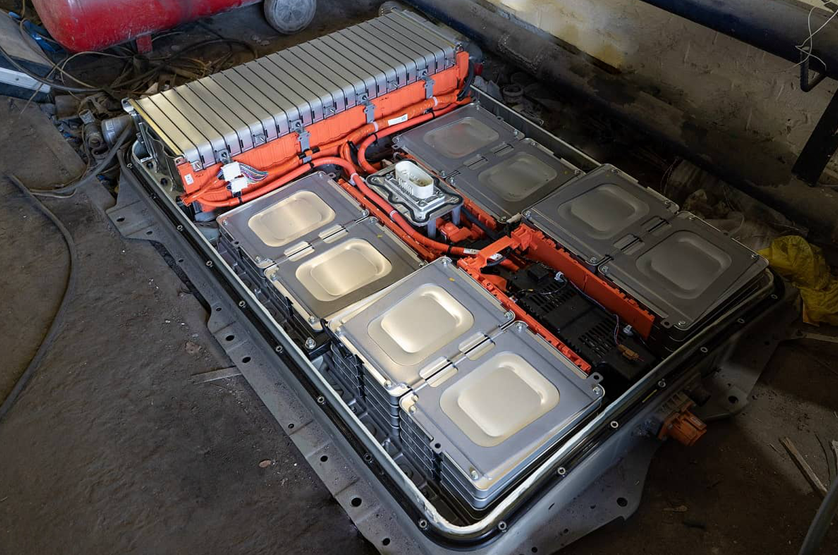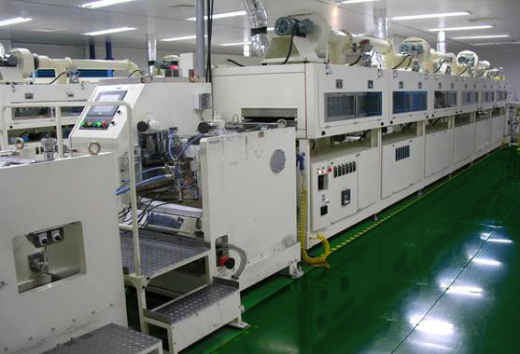Instrumentation of Lithium Battery: Enhancing Performance and Safety
Introduction:
Lithium-ion batteries have revolutionized the portable electronic industry and are becoming increasingly prevalent in various applications, from electric vehicles to renewable energy storage. However, ensuring the performance and safety of lithium batteries is of utmost importance, as their failure can result in catastrophic consequences. This article aims to explore the significance of instrumentation in lithium batteries and how it enhances their performance and safety.
1. Monitoring and Control Systems:
Instrumentation plays a crucial role in monitoring and controlling various parameters of lithium batteries, such as voltage, current, temperature, and state of charge. Real-time monitoring allows for early detection of any abnormalities or deviations from normal operating conditions, ensuring timely intervention to prevent potential risks. Control systems can adjust charging and discharging rates based on the battery\’s condition, optimizing its performance and extending its lifespan.
2. Thermal Management:
One of the major challenges with lithium batteries is heat generation during charging and discharging processes. Instrumentation enables the implementation of effective thermal management systems to regulate temperature within safe limits. Temperature sensors and thermal imaging techniques help detect hotspots and prevent thermal runaway, which could lead to battery failure or even fire. By actively managing the battery\’s thermal behavior, its overall performance and safety can be significantly improved.
3. Cell Balancing:
Lithium batteries consist of multiple cells connected in series or parallel. Cell balancing ensures that all cells within the battery pack are equally charged or discharged, preventing capacity imbalance and improving overall performance. Instrumentation techniques, such as voltage and impedance measurements, enable accurate monitoring of individual cell voltages and states of charge. Active cell balancing systems can redistribute energy between cells, preventing overcharging or over-discharging of any particular cell.
4. Failure Prediction and Diagnosis:
Instrumentation allows for the continuous monitoring of various battery parameters to identify early signs of potential failure. By analyzing data collected from the battery\’s internal sensors, it becomes possible to detect anomalies associated with capacity degradation, internal short circuits, or electrolyte leakage. Early detection of these issues enables proactive maintenance or replacement of faulty batteries, reducing the risk of sudden failures.

5. State-of-Health Assessment:
Instrumentation techniques, such as impedance spectroscopy, enable accurate assessment of a battery\’s state of health (SoH). SoH estimation involves analyzing internal resistance, capacity fade, and other relevant factors to determine the overall condition of the battery. By regularly evaluating the battery\’s SoH, it becomes possible to predict its remaining useful life and plan for replacements or repairs accordingly, improving overall safety and performance.
Conclusion:
Instrumentation is essential for enhancing the performance and safety of lithium batteries. By continuously monitoring and controlling various parameters, such as voltage, temperature, and state of charge, potential risks can be detected early, and appropriate actions can be taken. Thermal management, cell balancing, failure prediction, and SoH assessment are all critical aspects that can be addressed through instrumentation. As lithium battery technology continues to evolve, further advancements in instrumentation will play a vital role in ensuring their safe and efficient operation.
-
 When it comes to boating, having a reliable and efficient power source is essential. A cranking battery is designed specifically for this purpose, providing the necessary power to start your boat\'s engine. In this article, we will explore the features and benefits of a cranking battery, as well as provide tips on how to choose the right one for your...Read more
When it comes to boating, having a reliable and efficient power source is essential. A cranking battery is designed specifically for this purpose, providing the necessary power to start your boat\'s engine. In this article, we will explore the features and benefits of a cranking battery, as well as provide tips on how to choose the right one for your...Read more -
 When it comes to powering our modern day devices and appliances, batteries have become an integral part of our lives. From powering our phones and laptops to supporting renewable energy systems, batteries play a crucial role in our daily lives. However, choosing the right battery can be a daunting task, especially when it comes to high-capacity batteries like 100Ah LiFePO4...Read more
When it comes to powering our modern day devices and appliances, batteries have become an integral part of our lives. From powering our phones and laptops to supporting renewable energy systems, batteries play a crucial role in our daily lives. However, choosing the right battery can be a daunting task, especially when it comes to high-capacity batteries like 100Ah LiFePO4...Read more -
 An emergency starter battery, also known as a jump starter or a booster pack, is a device that can save you from being stranded with a dead car battery. It is essentially a portable battery that can be used to jump-start a car without the need for another working vehicle or a set of jumper cables. If you've ever...Read more
An emergency starter battery, also known as a jump starter or a booster pack, is a device that can save you from being stranded with a dead car battery. It is essentially a portable battery that can be used to jump-start a car without the need for another working vehicle or a set of jumper cables. If you've ever...Read more -
 As the world is moving towards a sustainable future, the demand for efficient energy storage solutions is increasing rapidly. The High Capacity 12V 100Ah LiFePO4 Lithium Iron Phosphate Battery is a revolutionary product that promises to deliver reliable and sustainable energy storage solutions for various applications. In this article, we will discuss the features, advantages, and potential applications of this...Read more
As the world is moving towards a sustainable future, the demand for efficient energy storage solutions is increasing rapidly. The High Capacity 12V 100Ah LiFePO4 Lithium Iron Phosphate Battery is a revolutionary product that promises to deliver reliable and sustainable energy storage solutions for various applications. In this article, we will discuss the features, advantages, and potential applications of this...Read more -
 When it comes to boating, having a reliable and efficient power source is crucial for a smooth and enjoyable experience. The marine starting battery plays a vital role in powering your boat's engine, ensuring that it starts up with ease and runs smoothly throughout your journey. In this article, we will explore the importance of a marine starting battery and...Read more
When it comes to boating, having a reliable and efficient power source is crucial for a smooth and enjoyable experience. The marine starting battery plays a vital role in powering your boat's engine, ensuring that it starts up with ease and runs smoothly throughout your journey. In this article, we will explore the importance of a marine starting battery and...Read more -
 Lithium batteries have revolutionized the world of portable power solutions. With their high energy density and long cycle life, they have become the preferred choice for a wide range of applications, from electric vehicles to renewable energy storage. Among the various types of lithium batteries, the 100Ah Lithium Iron Phosphate (LiFePO4) battery stands out for its exceptional performance and reliability....Read more
Lithium batteries have revolutionized the world of portable power solutions. With their high energy density and long cycle life, they have become the preferred choice for a wide range of applications, from electric vehicles to renewable energy storage. Among the various types of lithium batteries, the 100Ah Lithium Iron Phosphate (LiFePO4) battery stands out for its exceptional performance and reliability....Read more -
 Power outages and emergencies can happen at any time, leaving you without access to essential appliances and devices. In such situations, having an emergency starter battery can make all the difference. Whether it's a natural disaster, a power outage, or a car breakdown, an emergency starter battery can provide you with reliable power when you need it the most. ...Read more
Power outages and emergencies can happen at any time, leaving you without access to essential appliances and devices. In such situations, having an emergency starter battery can make all the difference. Whether it's a natural disaster, a power outage, or a car breakdown, an emergency starter battery can provide you with reliable power when you need it the most. ...Read more

